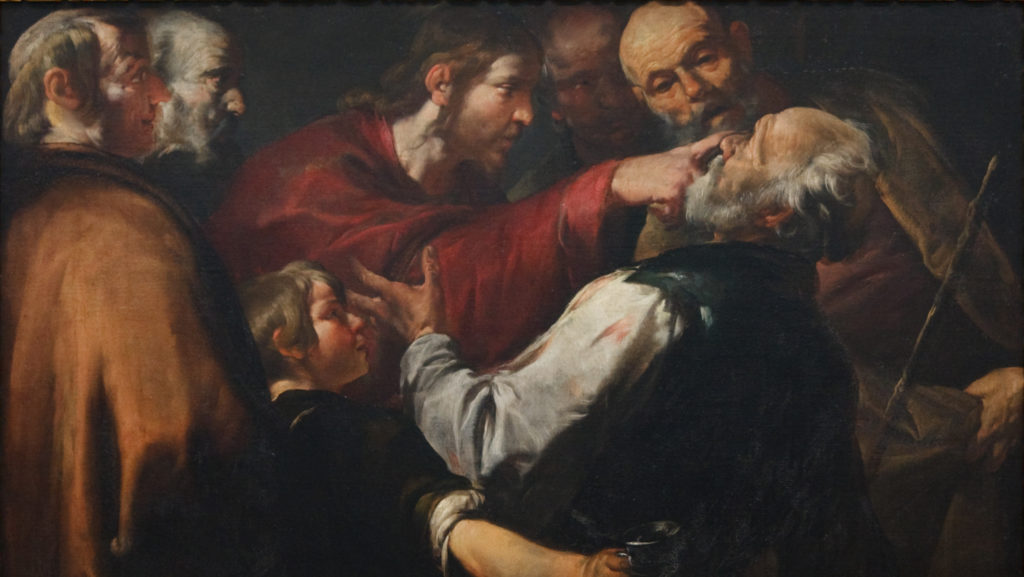Jer. 31:7-9 / Ps. 126:1-2, 2-3, 4-5, 6 / Heb. 5:1-6 / Mk. 10:46-52
Today’s Gospel turns on an irony — it is a blind man, Bartimaeus, who becomes the first besides the apostles to recognize Jesus as the Messiah. And his healing is the last miracle Jesus performs before entering the holy city of Jerusalem for his last week on earth.
The scene on the road to Jerusalem evokes the joyful procession prophesied by Jeremiah in today’s First Reading. In Jesus this prophecy is fulfilled. God, through the Messiah, is delivering his people from exile, bringing them back from the ends of the earth, with the blind and lame in their midst.
Jesus, as Bartimaeus proclaims, is the long-awaited Son promised to David (see 2 Samuel 7:12-16; Isaiah 11:9; Jeremiah 23:5). Upon his triumphal arrival in Jerusalem, all will see that the everlasting kingdom of David has come (see Mark 11:9-10).
As we hear in today’s Epistle, the Son of David was expected to be the Son of God (see Psalm 2:7). He was to be a priest-king like Melchizedek (see Psalm 110:4), who offered bread and wine to God Most High at the dawn of salvation history (see Genesis 14:18-20).
Bartimaeus is a symbol of his people, the captive Zion which we sing of in today’s Psalm. His God has done great things for him. All his life has been sown in tears and weeping. Now, he reaps a new life.
Bartimaeus, too, should be a sign for us. How often Christ passes us by — in the person of the poor, in the distressing guise of a troublesome family member or burdensome associate (see Matthew 25:31-46) — and yet we don’t see him.
Christ still calls to us through his Church, as Jesus sent his apostles to call Bartimaeus. Yet how often are we found to be listening instead to the voices of the crowd, not hearing the words of his Church.
Today he asks us what he asks Bartimaeus, “What do you want me to do for you?” Rejoicing, let us ask the same thing of him — what can we do for all that he has done for us?

